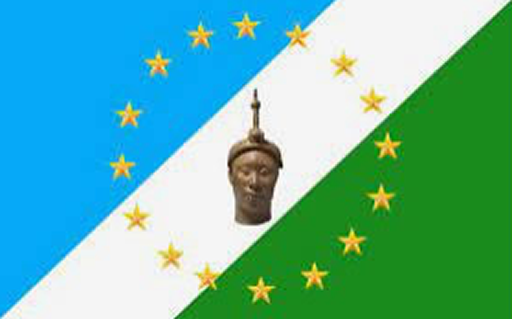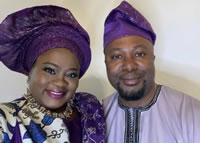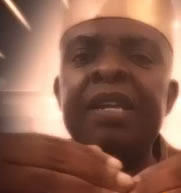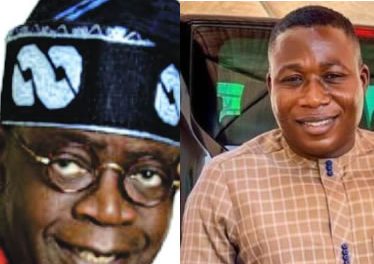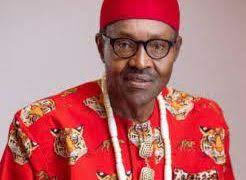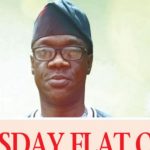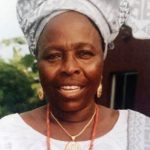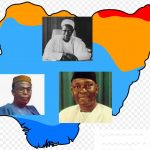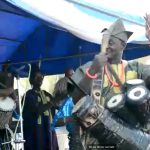Ó ti wà n’ínú ìtàn Ìshẹ̀nbáiyé lát’ìgbà tí aiyé ti wà. Ìlú t’ó bá ti gbàgbé èdè ẹ̀; ẹ̀yà (race of people) tí nwọ́n kọ̀ lati kọ́ àwọn ọmọ wọn ní èdèe wọn, ti ṣe tàn láti parẹ́. Inú àwọn òbí t’ọ́n jẹ́ Yoòbá míìn á ma dùn nítorí ọmọ nwọn ò lè sọ ọ̀rọ̀ kan shosho lásán ní èdèe Yoòbá. Awọn ọmọ tí nwọ́n bí sí ilẹ̀ẹ Yooba ti nwọ́n dẹ̀ẹ̀ d’àgbà sí ilẹ̀ẹ Yoòbá!
Ẹ wo àwọn Chinese, Indians àti Japanese; Òyìnbó kan ò fi ẹ̀sìn-in Christiani tàbí ti Islaamu kan tàn wọ́n jẹ! Èdèe wọn ni nwọ́n nsọ sí àwọn ọmọ wọn. Bí Òyìnbó bá lo ọgọ́rũn ọdún ní ìlú tí kìí ṣe ti wọn, èdèe wọn ni ọmọ wọ́n mã ma sọ! Ẹ̀sìn ìbílẹ̀ẹ wọn ni nwọ́n dẹ̀ẹ̀ ń sìn. Àwọn Russians nã ò gb’ẹ́hìn. Ńbo n’ọ́n wà l’éni ní àwùjọ Ẹgbẹ́ àwọn ìlú t’ó ti lọ s’íwájú ti nwọ́n dẹ̀ẹ̀ ti g’òkè Àgbà, ẹ sọ fún mi?
Ní ilẹ̀ẹ Yoòbá, kò sí abà, abúlé, ìletò, ìlú kékeré, ìlú ńlá kan, ti aà ti ní rí Onígbàgbọ́ tàbí Onímàle! Kódà, n’ínú ìdílé kan ṣoṣo, a lè rí ẹni t’ó jẹ́ Oníṣẹ̀ṣe, Onígbàgbọ́ tàbí Onímàle!
Ñjẹ́, t’ọ́n bá ní kí orílẹ̀ èdèe Nigeria pínyà l’óríi ẹ̀yà oníkálukú (Yorùbá, Ibo, Hausa), ìshòro ò ní sí, àbí? Àkíìkà! Ṣùgbọ́n t’ọ́n bá ní k’a pínyà l’órí ẹ̀sìn ńkọ́? Tàbí ogun bẹ́ s’ílẹ̀ ní Nigeria laarin àwọn Onímàle àti Onígbàgbọ́? Kìí ṣe pé ilẹ̀ẹ Yoruba mã parun tàbí parẹ́ ni? Ẹ̀sìn ti àwọn Òyìnbó tàbí àwọn Araabu bá ti ní k’a mã sìn l’ó dáa l’ójúu wa.
L’ọ́wọ́ l’ọ́wọ́ báyï, ẹrù kan ń mì dùgbẹ̀dùgbẹ̀ l’ókè; t’ó bá wá jábọ́, a bá ará-ilé, a bá ará-oko. Ẹ̀sìn ẹlẹ́sìn yï ló sọ wá d’èrò ẹ̀yìn l’áwùjọ àgbáyé!
Pánsá ò sì fu’ra, pánsá já’áná, àjà ò fu’ra, àjá jìn! Ọ̀tá àwọn ènìà aláwọ̀ dúdú ni Òyìnbó àti Árãbù jẹ́ láti ìshẹ̀ndálẹ̀ aiyé.
Ọ̀rọ́ kù s’ọ́wọ́ èmi àti ẹ̀yin.
——————————————————————————————————————————————————————–
Translated into English for those who may have difficulty understanding the Yorùbá text above (albeit being Yorùbás).
It’s always been the case throughout human history that a race of people that fails to teach their own children their language is doomed anyway.
Look at the Chinese, the Indians as well as the Japanese. Except perhaps those adopted by other language speakers, there’s no Chinese, Japanese, Indian or German child that cannot speak the language of his or her parents, wherever they may be.
Yet some Yorubas appear to derive some bizarre pride (and joy) when their own offspring exhibit an awfully derisive and pathetic grasp of the Yoruba language, which is one of the most ancient yet most beautiful in the world! Or, when the children appear inept at mouthing even the most common word in Yoruba. The parent makes an excuse: “ààh, kò gb’édè niì…” as if the child he or she is defending were adopted and raised by a white English couple in Europe (from birth and adoption) for 20 years and the child had just arrived to visit them (the biological parents) 5 mins ago! My God! And the parents celebrate this as if it were an achievement that their kids cannot or won’t speak Yoruba!
Already, there’s a scary likelihood that our current and especially future generations might be learning about Ifá, Ọ̀rànmíyàn, Shàngó, Ògún, Ọya, Ọbàtãlá, Ọ̀ṣun, Olúwẹri, Yemọja, and other Yorùbá deities from Europeans; which is happening already, especially in the case of Shàngó and the Yorùbá language that the indigenous owners appear to be so ashamed of.
Both the Japanese and the Chinese (and Indians) practice neither Christianity nor Islam. Where are they today with respect to development and economic power?
In Yorubaland, in little villages, towns and cities, one will find both devout Christians as well as Muslims. Heck, even in a single family unit! Right? Splendid.
Now, if Nigeria were to split on tribal/ethnic lines today, one would expect there would be no problems. Right. But, do tell me, what would happen if we were to go our separate ways on religious differences? Or, may The Lord forbid, war should ever break out between Christians and Muslims? What would become the fate of the Yoruba nation then? Has the Yoruba nation not prepared itself for self-annihilation? Would there be a race of people called the Yorùbá after the dust has settled? I am not a devil’s advocate. Neither am I a warmonger; nor a doom merchant. Thanks for reading.
